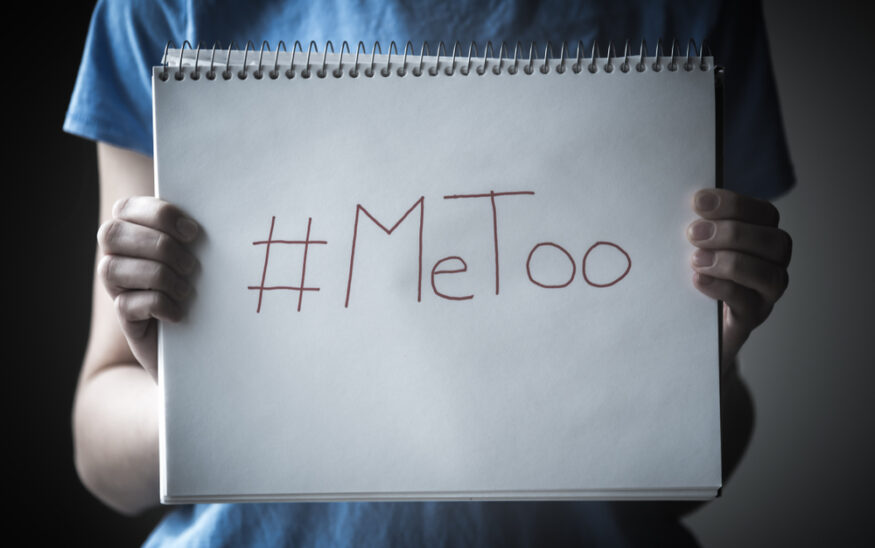Preventing #MeToo in the Workplace
Keeping your company from being the latest headline
Don Samuels //April 18, 2019//


Preventing #MeToo in the Workplace
Keeping your company from being the latest headline
Don Samuels //April 18, 2019//

The list of wealthy, powerful and prominent people who have been accused of sexual misconduct in the workplace continues to grow as the #MeToo movement resonates with alleged victims who are increasingly empowered to come forward. But allegations of misconduct are not limited to the Hollywood or business elite. The U.S. Equal Employment Opportunity Commission recovered nearly $70 million for the victims of sexual harassment through litigation and administrative enforcement in fiscal year 2018 – up significantly from $47.5 million in fiscal year 2017.
Accused individuals are not the only ones whose reputations are tarnished by harassment or abuse allegations; companies also stand to lose a significant amount of public trust when an incident happens on their watch. They can face serious penalties though costly legal fees, loss of employee morale and a permanently damaged reputation. Employers should take care to understand the legal obligations for educating employees, maintaining a safe and inclusive environment and avoiding becoming complicit in sexual harassment or misconduct.
When is a Company Liable?
Some of the most common mistakes made by employers that can result in liability include ignoring allegations, blaming or disciplining the victim, moving or transferring the employee rather than the harasser, and failing to investigate or follow up after an allegation. If an employer is held for harassment, it can be subject to paying back pay, front pay, compensatory damages, attorneys’ fees and punitive damages.
A company is strictly liable when an employee experiences harassment which involves a tangible employment action (i.e., firing, discipline, constructive discharge, demotion or reassignment). In the absence of a tangible employment action, an employer us also liable unless it can prove it exercised reasonable care to prevent and promptly correct any sexually harassing behavior, and the employee unreasonably failed to take advantage of the employer’s policies.
It is essential for employers to investigate any and all reports of harassment. In conducting those investigations, and employer should emphasize due process and fairness while remaining neutral and unbiased. Investigations should be prompt, thorough, and employ best practices such as using open ended questions.
Protecting Your Business & Employees
There have been a significant number of lawsuits lodged against employers by workers who were allegedly harassed at the office; the common theme that has emerged is that employers who reasonably try to prevent and correct acts of discrimination and/or harassment do have some legal protections.
Hostile environment harassment occurs when any form of unwelcome sexual conduct in the workplace is either severe or pervasive enough to create an intimidating, hostile, abusive or offensive working environment. It is important to provide employees with training to understand what constitutes harassment and to communicate and enforce a no-tolerance policy. However, be clear that false reports may also lead to disciplinary action.
Businesses must ensure they are not allowing conditions that create a hostile work environment for any employee, based on, among other things, sex, age, race, gender, sexual orientation or identify, religion or physical ability. Let employees know that if they experience harassment or bullying on the job, reporting their complaint in good faith is a protected activity that will not result in an adverse action against them.
Risky Business
While there is no single way to protect your business, it can be helpful to understand the types of situations that can increase vulnerability. Employees’ dating one another, for example, can create greater risk. Some studies say that as many as 80 percent of U.S. employees have experienced some sort of romantic relationship on the job. Other situations that warrant additional company vigilance to mitigate risk of inappropriate actions include interactions with vendors and clients, employees’ traveling alone or together, after-hours events, and supervisors dating subordinates.
The best way to ensure a productive workplace, safe and happy employees and minimal risk of legal liability is to establish clear policies and procedures, regularly educate and train employees, communicate frequently and consistently, and immediately investigate any allegations with an open mind and without reprisal for the employee lodging the complaint.
Don Samuels is a shareholder in the labor and employment practice at Am Law 100 legal firm Polsinelli in Denver.






















